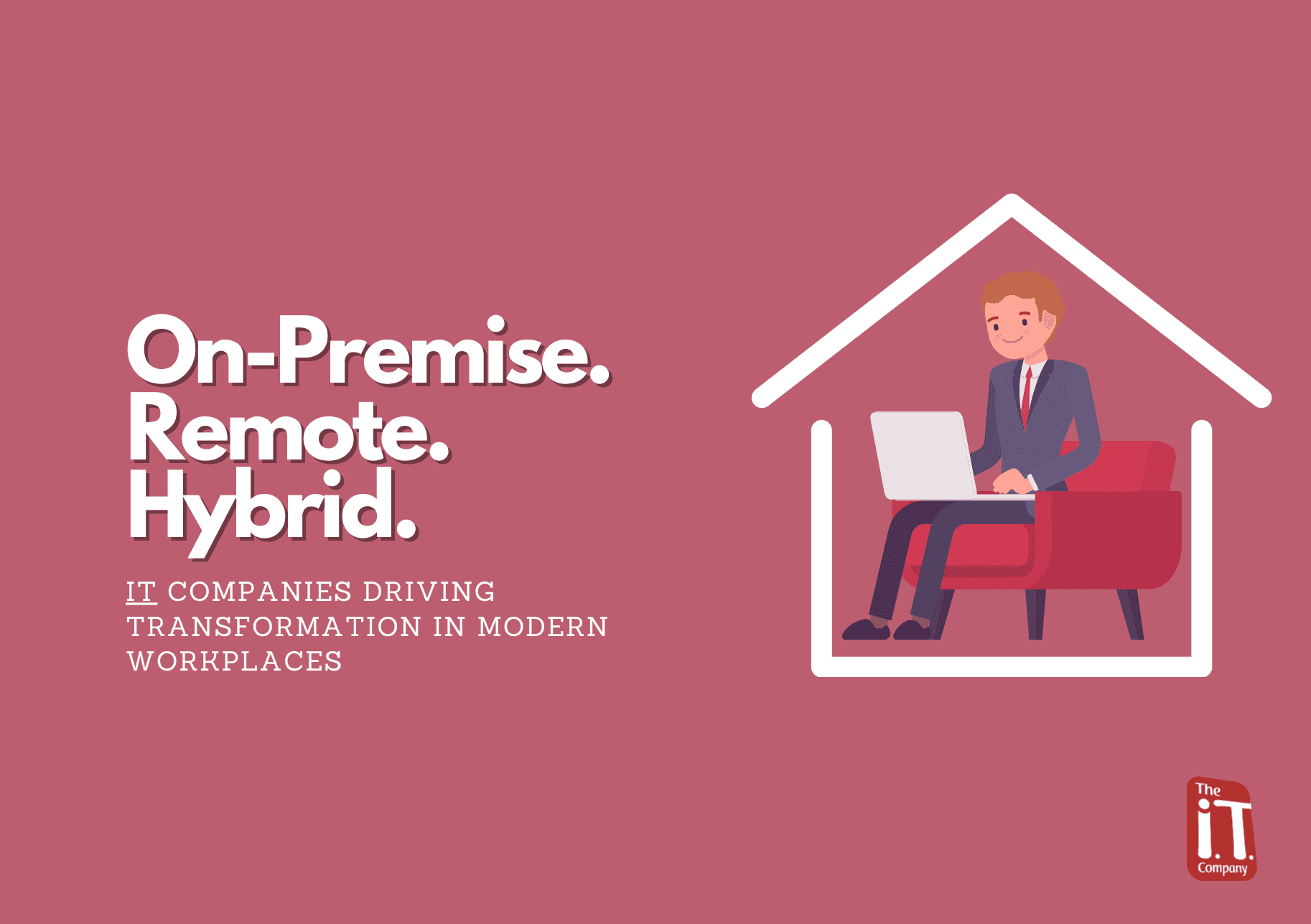Empowering Businesses in the Age of Modern Work Cultures: How IT Companies Are Driving the Change
In today’s fast-evolving workplace landscape, businesses are no longer confined to a single way of operating. The rise of three distinct work cultures—on-premise, remote work, and hybrid work—has reshaped how organizations function. These models offer flexibility and innovation but also bring a unique set of challenges that require robust technological solutions to address.
IT companies have become the backbone of this transformation. By providing innovative tools, tailored support, and secure systems, they empower businesses to seamlessly adapt to these new ways of working while remaining productive, collaborative, and secure.
On-Premise Work: Strengthening the Core of Office-Based Operations
For companies that primarily operate on-premise, the physical workplace remains the hub of collaboration and productivity. However, as technology advances, so do the demands for efficiency, security, and modernity. This is where IT companies step in, offering solutions that transform office operations into well-oiled machines.
IT firms help businesses design and implement robust IT infrastructures, from setting up high-performance networks to ensuring hardware systems are up-to-date and reliable. These providers also introduce cutting-edge software tailored to specific industries, streamlining workflows and eliminating bottlenecks.
Additionally, in today’s climate of rising cybersecurity threats, IT companies are vital for fortifying on-premise systems against data breaches. They offer proactive monitoring, regular security audits, and employee training programs to create a culture of cyber awareness, ensuring the organization is protected from potential threats.
Remote Work: Building Bridges Across Distance
Remote work has unlocked unprecedented freedom for employees and businesses, breaking down geographic barriers and allowing talent to thrive from anywhere in the world. However, this newfound flexibility comes with its own set of IT-related complexities, from ensuring secure access to company resources to maintaining seamless collaboration across dispersed teams.
IT companies play a pivotal role in creating efficient and secure remote work environments. They implement cloud-based platforms, allowing employees to access files, applications, and communication tools from any location. With the integration of virtual private networks (VPNs) and multi-factor authentication (MFA), IT providers ensure that sensitive company data remains protected, even when accessed remotely.
Beyond security, IT companies also focus on connectivity and collaboration. By deploying advanced tools like video conferencing software, project management platforms, and instant messaging systems, they foster a sense of community and teamwork among remote employees, making virtual workspaces as connected as physical offices.
Hybrid Work: Striking the Perfect Balance
The hybrid model, which blends on-premise and remote work, has gained immense popularity for its flexibility and ability to accommodate diverse employee preferences. However, managing a hybrid workforce requires innovative solutions to ensure that everyone, regardless of location, remains connected and productive.
IT companies specialize in creating cohesive hybrid work environments. They deploy centralized platforms that integrate tools for communication, project management, and file sharing, enabling teams to collaborate effortlessly whether they’re in the office or working remotely. These providers also ensure that hybrid setups are equipped with intelligent meeting room technology, such as interactive displays and smart scheduling tools, to bridge the gap between in-person and virtual collaboration.
Security remains a top priority in hybrid work, and IT companies excel in implementing unified security frameworks that protect data across both physical and virtual environments. By integrating endpoint protection, encryption, and regular updates, they provide businesses with the peace of mind to embrace hybrid models confidently.
The Vital Role of IT Companies Across All Work Models
No matter which work culture a business adopts, IT companies are indispensable partners in navigating the challenges and maximizing the opportunities of the modern workplace. Their contributions include:
- Tailored Solutions: Understanding that no two businesses are alike, IT firms customize technology strategies to align with specific needs and goals.
- Proactive Support: Offering round-the-clock IT support, regular maintenance, and quick troubleshooting to minimize downtime and disruptions.
- Scalable Infrastructure: Designing systems that can grow alongside the organization, ensuring sustainability and long-term success.
- Employee Training: Educating teams on how to use tools effectively and safely, empowering them to thrive in any work model.
Adapting to the Future of Work
As work cultures continue to evolve, IT companies remain at the forefront of innovation, helping businesses stay agile and competitive. Whether through advanced cloud integration for remote teams, robust security for on-premise systems, or unified platforms for hybrid workforces, IT providers are the driving force behind a seamless transition into the future of work.
By partnering with an experienced IT company, businesses can navigate this dynamic landscape with confidence, knowing they have the tools and expertise to succeed—no matter what the future holds.

